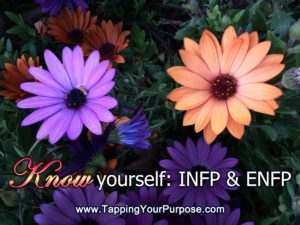 Understanding ourselves is a key element of choosing the perfect career or building the business that is right for you.
Understanding ourselves is a key element of choosing the perfect career or building the business that is right for you.
One of the most common tools used to gain a deeper understanding of ourselves it’s called the Myers Briggs Type Indicator.
Based on Carl Jung’s theories, this framework shows us that there are 16 different types of people, depending on how they prefer to make decisions and gather information.
Of course, each individual is unique, but these 16 groups are helpful in guiding us discover how we prefer to use our minds.
And relative to your career or business path, it can point towards where your biggest contribution may lay.
This article is inspired by a question that Julia Barnickle of The Quiet Entrepreneur left on her facebook group, and it’s a bit advanced material. If you are not familiar with the MBTI I deeply encourage you to read this introduction to the Myers Briggs test first.
Julia’s comment was this: ”I’m a little confused about why the inferior function for INFP is extroverted Thinking, whilst for ENFP it’s introverted Sensing, though…”
I’ll explain what INFPs and ENFPs are great at. But before I I do, here is a brief recap of what the Myers Briggs type indicator tells about who you are.
30 Second recap of Myers Briggs personality types
According the Myers Briggs, each personality type prefers to use her mind in a specific way. Some activities feel good and we tend to do more of those, while others feel like a chore, so we tend to avoid them whenever we can.
The thing that comes so naturally to us, is what we’ve spent most of our time doing, and perfecting. So we do that really well.
Myers Briggs experts call it “Dominant Function”.
We can simply call it a natural talent.
Since each one of the 16 types has a specific dominant function, once you discover which personality type is yours, you gain a lot of insights about what you are really good at. That’s why this framework is so useful.
INFP Strengths
INFPs have spent most of their time connected to their inner worlds, checking with their inner feelings if something was correct, ethical and coherent with their personal values.
Just in case your are curious, this is my personality type so I know it first hand,
It also means that we are deeply in touch with our feelings because they act as an inner compass: when something goes against our personal values, our feelings of disgust, discomfort, and anger will let us know.
Likewise, we get stirred emotionally and are deeply touched whenever something reflects our most cherished values.
This mental process -or dominant function- it’s called Introverted Feeling
Since INFPs are introverts, meaning that their prefered mental function occurs inside of themselves, it’s not obvious to others which will not notice this depth of feeling going on in our inner worlds.
Everybody has the capacity to do this. The difference is the amount of time INFPs have spent doing it.
ENFP’s strengths
ENFPs use a different dominant mental process (function). They are connected to the outer world (hence, extroverted). They notice what is going on around them, the subtle connections between people, behaviours, situations, ideas and how they might be related.
One idea or something they see sparks new ideas and connections in their minds, like when we brainstorm. It can see an explosion of new possibilities.
This process it’s called Extroverted Intuition. And It needs to be engaged with the outside world for this to take place.
Again, everyone is capable of doing this but ENFPs really excell at it.
Both INFPs and ENFPs use Introverted Feeling (Fi) and Extroverted Intuition (Ne), but while for INFPs Introverted Feeling it’s their dominant mental process, it is the auxiliary for an ENFP. And vice versa, ENFP’s dominant process is Extroverted Intuition.
But what happens when you are tired?
We spend most of our time engaged in our preferred mental process, that is, in our dominant function. It’s our first choice when we need to solve a problem (even if we don’t notice that we do).
But that takes energy. A lot. And exactly the same that happens when we get tired of using a muscle, we need to take a break and let our minds to recharge.
Our bodies are incredibly wise. So whenever we need to give our minds a rest, our body disconnects the areas we’ve been overusing by activating the total opposite process.
The opposite of Introverted feeling is extroverted thinking:
We stop feeling things so deeply and acquire a detached perspective of life, even if just for a few minutes.
The opposite of Extroverted Intuition is Introverted Sensing
We stop noticing all the possibilities for the future and focus on reliving a memory from the past.
What are you good at?
And as I said before, the Myers Briggs is just one of the tools we have to know ourselves. But identifying your personality type is a bit tricky.
I much more prefer a different tool, also based on Carl Jung’s theories about archetypes, which gives you a breadth of information.
Knowing your Active Archetypes not only it will reveal your values, and natural gifts, it will also show you what you are called to do right now to live your purpose.
I personally created a quiz to help you find your active archetypes. You can take the quiz by visiting:
Wat makes you different quiz
